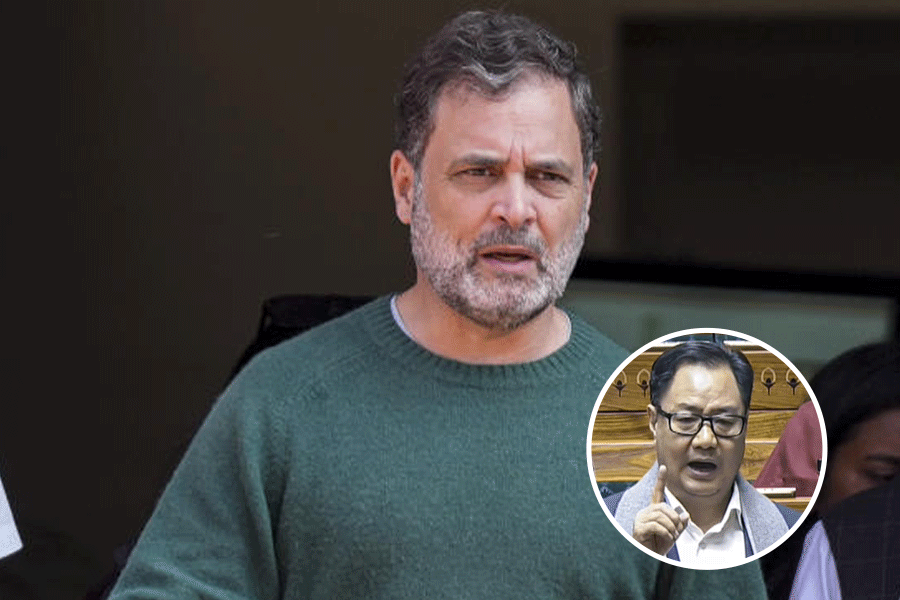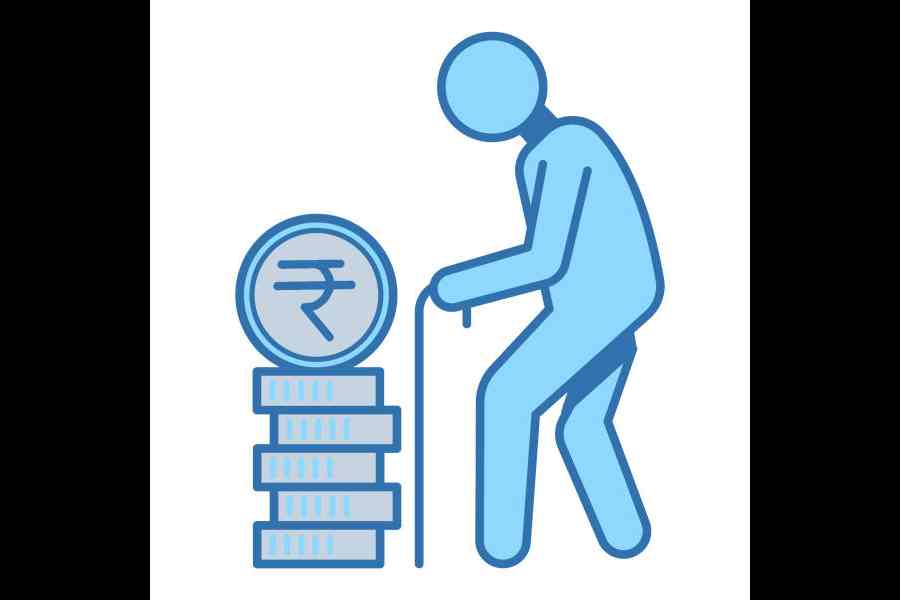|
|
A new United Progressive Alliance coalition around a rejuvenated Congress has assumed power in Delhi. The June 3 presidential address did not give any clue to the new government’s thinking on foreign policy, although on a host of domestic issues, ambitious policies were outlined. Standard diplomatic formulations were used to convey continuity in policy in external affairs. Saying that relations with all countries — neighbours, the United States of America, Russia, Europe, China, Japan, Africa and Latin America — will improve does not disclose much. The reference to Pakistan was low-key and moderate in tone, leaving the door open to “reshaping” India’s policy towards that country if it sincerely confronted terrorism from its soil directed against us.
That the government will show zero tolerance towards terrorism has been repeatedly said in the past, but it has remained a rhetorical flourish in the absence of steps to build the required physical, administrative, legal and moral capacities in the country to give teeth to such determination. The address did refer to some steps to be taken on the domestic front to upgrade the machinery for combating terrorism, but the external challenge was left unfocused. That enlightened self-interest and maintenance of independence will be the guiding principles in foreign policy, though salutary in intent, provided no fresh insight into the government’s thinking. The enunciation of the new government’s foreign-policy goals would suggest that it might be business as usual.
With the UPA victory, the internal challenge of producing a coherent, well-functioning Central government has been met. India had begun to lose its external stature because of its increasingly unmanageable coalition politics and deteriorating quality of governance. India is as yet too vulnerable to coast along with a weak Central government. Our situation differs from that of some western European countries where highly divisive politics causes frequent changes in government, without exposure to internal and external dangers. Apart from the European Union’s safety net, they are secure against any external threat, not only because of Nato, but also because such threats no longer exist in Europe. Moreover, countries like Germany, in order to maintain their political standing and economic prosperity, have, in the face of blocked electoral politics, shown the wisdom of opting for a national government of both the ruling and opposition parties.
India is on its own and must fend for itself. The challenges we face are uniquely complex. Two large hostile powers, both nuclear, flank us in the North and the West, with shared interest in containing and countering us. Our other smaller neighbours, barring one, feeling overwhelmed by our size and threatened in their sovereignty, resent us to different degrees. They assert their independence by wilfully disregarding our interests and concerns and allowing forces and influences inimical to us to establish themselves on their soil as a balancing act. Cross-border ethnic and other linkages, accompanied by porous borders, aggravate our internal security problems. And, of course, the epicentre of religious extremism, and the terrorism that it spawns, is located in our immediate neighbourhood.
The previous UPA government’s record in dealing with our external challenges is not particularly inspiring. While the improvement of our ties with the US and the ending of India’s nuclear isolation on acceptable terms were perfectly desirable foreign-policy goals, our internal politics distorted the debate on the nuclear deal, with the government exaggerating its benefits to counter the Opposition’s cry that it was harmful. If the Left’s anti-Americanism was seen as colouring its denunciation of the deal, the government’s pro-Americanism, by contrast, was seen as colouring its enthusiasm for it. The benefits of the US connection were oversold by the government to justify the signing of the deal, leading, in return, to accusations by the Left that the independence of India’s foreign policy was being compromised.
In the case of terrorism, too, the issue could not be dealt with on its merits because it got embroiled in domestic politics, with the Bharatiya Janata Party accusing the UPA of weakness of approach because of vote-bank politics, and the former being accused of being ineffectual in dealing with the menace when in power. Even repeated terrorist attacks in our cities failed to move the issue out of the circle of mutual recrimination between the two principal parties until the shock of the Mumbai massacre compelled the government to toughen its position on internal security. The Mumbai attack visibly sponsored by Pakistani agencies, along with the earlier ouster from power of Pervez Musharraf, also exposed the frailty of the UPA’s Pakistan policy as well as its hopes with regard to US policy in the sub-continent.
If there was over-reliance on Musharraf’s power and personality to deliver on issues dividing India and Pakistan, there has been over-reliance, too, on the US to make Pakistan deliver on Mumbai. Finally, in the case of China, the previous government bent over backwards not to take offense at its bilateral provocations and dubious diplomacy towards us at the multilateral level, but without any return gains on the border issue.
The most complex challenges to the UPA arise from American policies. We have an interest in consolidating our improved ties with the US, but its policies in our region make the task difficult. The Americans now acknowledge that Pakistan has used billions of dollars of military aid to boost its capabilities against India rather than to bolster its capacity to fight the terrorists. Lately, they are acknowledging, too, that Pakistan has been selective in its combat against terrorists, ignoring the “good” jihadis targeting India. The ISI’s continuing linkages with Taliban elements as a hedging strategy in Afghanistan is also being recognized.
Yet, large-scale economic and military aid is being pumped into Pakistan; there is continuing unwillingness to impose exacting conditions for fear of upsetting the Pakistani establishment; the very force (the military) that is responsible for unremitting hostility towards India, for nurturing extremist groups to further Pakistan’s geo-political goals vis-à-vis India and Afghanistan and for stunting democracy at home, has become the Americans’ partner of choice in realizing their regional agenda. It would be naïve to believe that US largesse will transform the Pakistan military as well as its polity into responsible agencies for real change in the country’s policies towards India or Afghanistan.
The US is building Pakistan’s capacity to continue its confrontationalist policies towards India in the future. The Mumbai episode has demonstrated the limits of what we can expect from the US on the terrorism front. The release of Hafiz Saeed and the Pakistan prime minister’s retrogressive statements on Kashmir are instructive in this regard. India’s demand for the resumption of dialogue with Pakistan has been pitched at the minimum, unlike what the US is exacting from Pakistan by way of military operations against local terrorists. Our fears that we will come under US pressure to resume dialogue with Pakistan, irrespective of Mumbai, expose the fragility of the strategic understanding with the US. Reports surfacing that the government is looking for some way of resuming dialogue suggest that the strength of the UPA’s victory has not yet gone to its decision-making bones.











